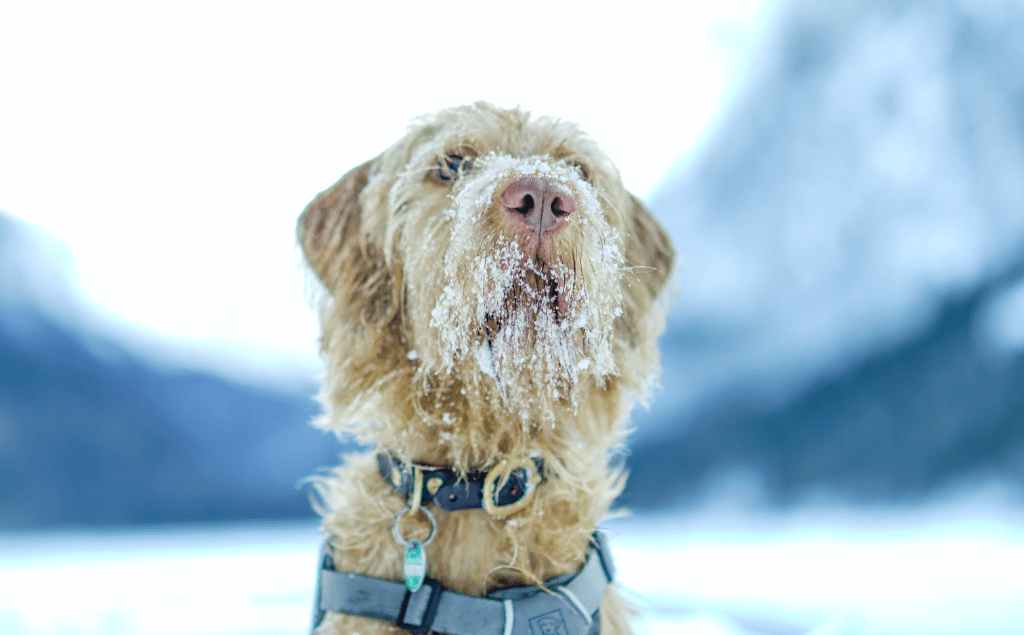Dog Hypothermia: What it is and How to Protect Your Pet
As the frosty fingers of winter stretch across the land, it's crucial for pet owners to understand the risks of cold weather to their furry companions. Dog hypothermia is a winter emergency that can catch many by surprise, but with the right knowledge, you can safeguard your beloved pet from this chilly danger.
In this essential guide, we'll discuss the what, why, and how of dog hypothermia and share insights on protecting your pet during the cold months.
Remember, if you're concerned about your pet's well-being, please call one of Emergency Veterinary Care Centers locations to speak with our compassionate experts.

What Is Dog Hypothermia and Why Is It a Concern?
When the body temperature of a dog falls below the normal range of 101° to 102.5°F, hypothermia sets in. This condition can occur when dogs are exposed to cold temperatures or become wet in chilly weather. It's a serious concern because it can lead to weakened immunity, frostbite, and in severe cases, can be life-threatening.
The Warning Signs You Can't Ignore
Early recognition is key. Symptoms of hypothermia in dogs include shivering, lethargy, weakness, and shallow breathing. As the condition progresses, these signs can worsen, leading to a comatose state and, without intervention, even death.
How Can You Shield Your Pet From the Perils of Hypothermia?
Essential Gear for Winter Wellness:
Just like humans, dogs need additional protection in winter. Items like waterproof, insulated coats, and dog-safe booties can significantly reduce the risk of hypothermia. It's not just about fashion; it's about health.
Creating a Cozy Refuge at Home
Inside your home, ensure your pet has a warm, draft-free place to rest. Bedding should be thick and lifted off cold floors, and extra blankets can offer much-needed warmth.
Spotting the Subtle Signs
Understanding your dog's normal behavior and monitoring any changes can be life-saving. Slight shifts in energy levels, a decrease in appetite, or a reluctance to play could be the first hints that something is not right in colder weather.
Winter Walks: Ensuring Your Dog's Safety
It's not just about shorter, more frequent walks during winter; it's also about choosing the safest times of day. Midday, when temperatures might be slightly warmer, is preferable. Also, keep an eye out for antifreeze or salt, which can be harmful to your pet's paws and health.
Understanding Breed Vulnerabilities
Some breeds are more vulnerable to cold than others. Short-haired, very young, or old dogs, and those with medical conditions need extra care in winter. Know your dog's limits and always err on the side of caution when temperatures drop.
The Role of Veterinary Care in Hypothermia Prevention
Regular Health Checks
Routine veterinary check-ups are vital during the winter months. These visits can catch any issues that might make your dog more susceptible to cold weather, such as arthritis or heart disease.
Emergency Care
If you suspect your dog has hypothermia, immediate veterinary care is essential. Our Emergency Veterinary Care Centers are equipped to handle such emergencies and provide your pet with the necessary treatment to recover.
Contact Emergency Veterinary Care Centers
As a pet owner, the comfort and safety of your dog during the winter months are paramount. Dog hypothermia is a severe condition but with vigilance and the right preventive measures, you can enjoy the snowy season without incident.
Should you have any concerns or if you notice signs of hypothermia in your pet, call one of our Emergency Veterinary Care Centers locations immediately. Our dedicated team is ready to ensure your dog receives the best possible care.
Recent Posts
About Us
At Emergency Veterinary Care Centers (EVCC), we know that pet emergencies are unpredictable and often stressful. That's why our team, with over 20 years of emergency and critical care experience, is ready to assist you and your pet in the toughest situations.


